 The official end of summer has passed and kids all over the nation are back at school and I can easily imagine the hallways are still bursting over with stories of summer camp and all of its amazing experiences. Let me tell you about College Days! The fireworks over the lake on the last night! I so miss my camp friends…
The official end of summer has passed and kids all over the nation are back at school and I can easily imagine the hallways are still bursting over with stories of summer camp and all of its amazing experiences. Let me tell you about College Days! The fireworks over the lake on the last night! I so miss my camp friends…
Someone else campers might be missing as they return to school is their Camp Mom. Usually assigned to the youngest campers, the Camp Mom serves as the wonder woman of camp life. Ever wonder who keeps nails clipped, or makes sure kids eat a balanced meal? Camp Mom.
“I work really closely with them,” says Amy Blum, who served as Camp Mom for the youngest girls (7-11 year olds) at Camp Starlight this summer. Blum lived at camp the entire summer and saw her role as being an “extra set of eyes and ears to make sure the younger kids were having a great time.” Counselors are in their early twenties, Blum points out, and they haven’t had or raised children, so having a mom on hand was a source of comfort for everyone.
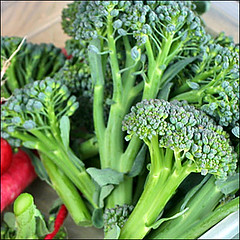
“The counselors would come to me for advice,” Blum says, and she would often think of things that young college students just wouldn’t. “We would always be there at lunch time, taking a look at everyone’s plate as they walked by. When kids came by just filled up with French fries, I’d send them back to get something else. That’s not something the counselors may notice,” she says, admitting that sometimes it’s the counselors themselves who may need a nudge toward the healthier lunch options.
Camp Moms are also just what their name implies, a mom away from home. If a camper is missing home, Amy is ready with a hug and a listening ear. When campers in the nurses office or the health center need a cold glass of ice water, Blum is there to deliver it and check in on them. Blum was always there to help apply sunscreen and Chapstick in the morning, help the girls get their bunks ready for inspection and check in after phone calls home or visiting day.
“I was very impressed with how independent the girls were,” Blum says. “I expected more adjustment issues but the girls were very well prepared for camp. The knew what was expected of them and they did it very well.”

There’s always the need for a helping hand, though. Blum was there to lead a circle game while girls waited their turn on the archery field- don’t like the idea of waiting maybe sing with them as they go to activities or something, for example, encourage the girls as they tackle the climbing wall, and make emergency bathroom runs. She would also hand out the “secret snacks” and be their constant cheerleader.
Blum herself has been involved with summer camp continuously since she was a camper herself in the late 70s. “I’ve missed only three summers since then, and I met my husband at summer camp.” The Blum family tradition is continuing; Amy’s daughter was a counselor in the youngest girls’ bunk at Starlight this summer. She hopes to continue the tradition next summer and would love to return to be Camp Mom again. “I loved what I did and we all enjoyed it and had a good time. It was a wonderful experience.”
Susan

Thanks for the image sponselli and Glen Bowman.

 570-798-9831
570-798-9831


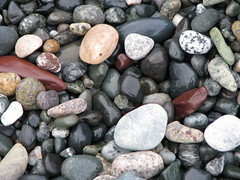 Louv discovered that
Louv discovered that 
 Here at Camp Weequahic, we spend a lot of time in the Fall and Winter seasons traveling around the country to meet with future campers. We schedule home visits where you are, to come and meet your child and answer any questions your family has. Families usually contact us anywhere from a month to a week out from where we are headed (you can find out
Here at Camp Weequahic, we spend a lot of time in the Fall and Winter seasons traveling around the country to meet with future campers. We schedule home visits where you are, to come and meet your child and answer any questions your family has. Families usually contact us anywhere from a month to a week out from where we are headed (you can find out 
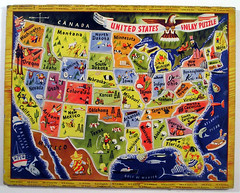 When we can, we especially like to bring new and current camp families together to share experiences. To make this happen, Cole will host ice cream parties in Florida, New York, Connecticut, Philadelphia and New Jersey. Both the home visits and ice cream parties bring Cole a special pleasure as camp director. He gets to meet everyone and to know them before camp starts. That way, they have a familiar face greeting them when they arrive. More importantly, these meetings allow Cole to prepare the best possible experience for the children, from their bunk life to the counselor who will share their summer with them.
When we can, we especially like to bring new and current camp families together to share experiences. To make this happen, Cole will host ice cream parties in Florida, New York, Connecticut, Philadelphia and New Jersey. Both the home visits and ice cream parties bring Cole a special pleasure as camp director. He gets to meet everyone and to know them before camp starts. That way, they have a familiar face greeting them when they arrive. More importantly, these meetings allow Cole to prepare the best possible experience for the children, from their bunk life to the counselor who will share their summer with them.


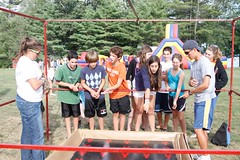 “Camp teaches values such as self-esteem, teamwork, and caring — areas where traditional schools sometimes cause more detriment than good. And camp allows everyone, not just the top student and the best athlete, to thrive and enjoy the process of learning,” says Peg Smith, CEO of the
“Camp teaches values such as self-esteem, teamwork, and caring — areas where traditional schools sometimes cause more detriment than good. And camp allows everyone, not just the top student and the best athlete, to thrive and enjoy the process of learning,” says Peg Smith, CEO of the 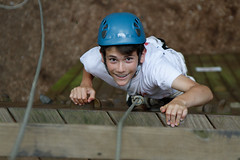
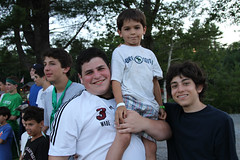
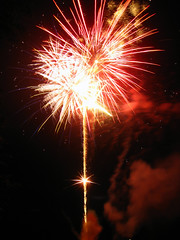



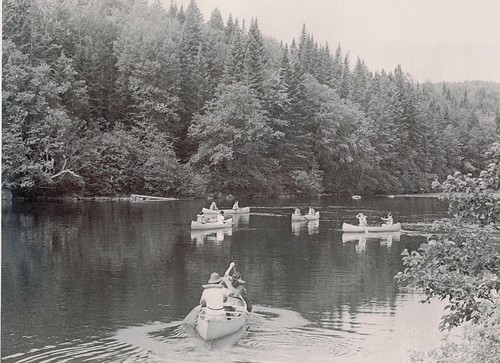
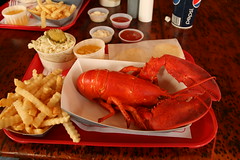 Laurel also hosts College Days and Lobster and Steak/Final Ceremony. College Days (which lasts five days!) is Laurel’s answer to the camp color war and includes spirit, fun, games, tug ‘o war, swim meets, track meets, staff competitions, Apache relays, silent meals, treasure hunts, dance competitions and much more. Laurel finishes camp with a flourish by hosting a meal with lobster direct from the sea. After all, who could come to camp in Maine and not love lobster? The campers finish their summer with speeches, traditional songs and a night sleeping under the stars.
Laurel also hosts College Days and Lobster and Steak/Final Ceremony. College Days (which lasts five days!) is Laurel’s answer to the camp color war and includes spirit, fun, games, tug ‘o war, swim meets, track meets, staff competitions, Apache relays, silent meals, treasure hunts, dance competitions and much more. Laurel finishes camp with a flourish by hosting a meal with lobster direct from the sea. After all, who could come to camp in Maine and not love lobster? The campers finish their summer with speeches, traditional songs and a night sleeping under the stars.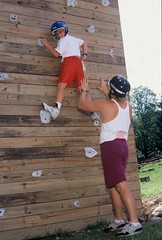 Martha and Jaden also exchanged many letters throughout the summer. In his first letter, Jaden reported that “camp is awesome!” and that he loved the turkey meatballs. Martha loved the correspondence, saying, “Jaden would remember and tell me what I wrote in my letters, and he would tell me things he had done at camp – doing the climbing wall, making friends in the bunk, and so on.”
Martha and Jaden also exchanged many letters throughout the summer. In his first letter, Jaden reported that “camp is awesome!” and that he loved the turkey meatballs. Martha loved the correspondence, saying, “Jaden would remember and tell me what I wrote in my letters, and he would tell me things he had done at camp – doing the climbing wall, making friends in the bunk, and so on.”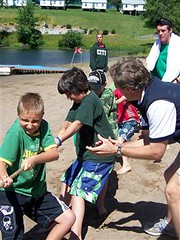 “The camp makes it easy on the parents,” she says now. “They post hundreds of pictures every day.” The first picture she saw of Justin was of him getting off the bus with a huge smile on his face. The next day he was at the lake on the water trampoline. “Those photos are the best way to do start conversations,” she says.
“The camp makes it easy on the parents,” she says now. “They post hundreds of pictures every day.” The first picture she saw of Justin was of him getting off the bus with a huge smile on his face. The next day he was at the lake on the water trampoline. “Those photos are the best way to do start conversations,” she says.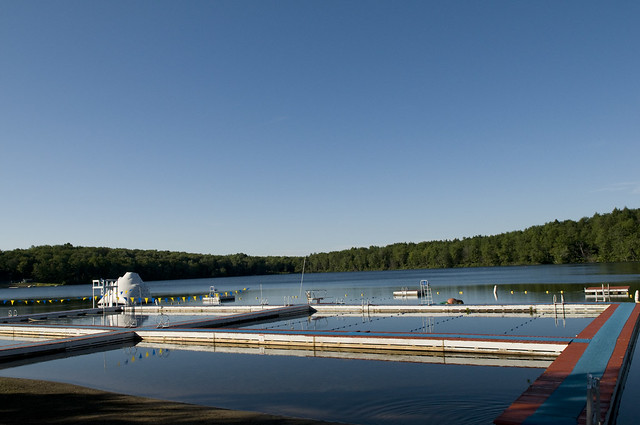
 The AFSC family of camps each have their own special camp traditions that bring the entire camp together for friendly competition, unique bonding activities, wonderful gourmet treats, and a chance to show off talents and teamwork. Here’s a quick summary of each for you but be sure to check out the Camp web sites linked here!
The AFSC family of camps each have their own special camp traditions that bring the entire camp together for friendly competition, unique bonding activities, wonderful gourmet treats, and a chance to show off talents and teamwork. Here’s a quick summary of each for you but be sure to check out the Camp web sites linked here!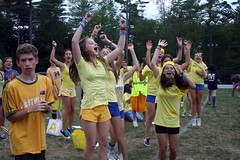

 As we said earlier, every camp has a take on the camp stand-by, the color war, and at
As we said earlier, every camp has a take on the camp stand-by, the color war, and at